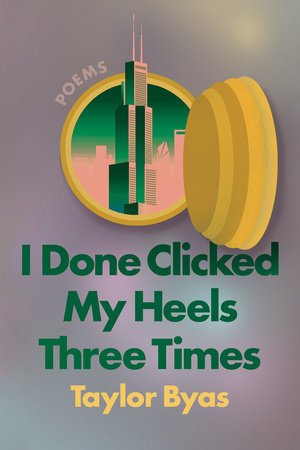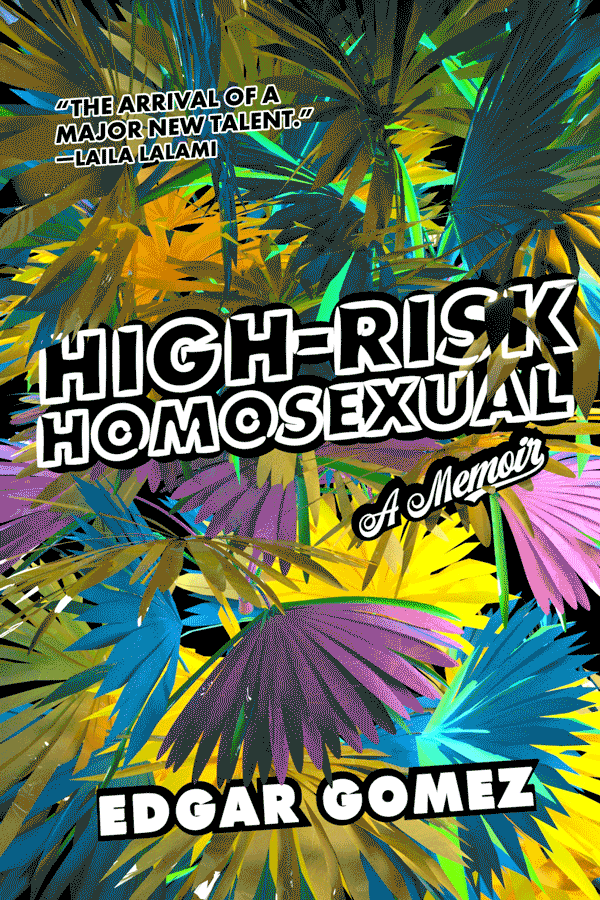Out now: I DONE CLICKED MY HEELS THREE TIMES by Taylor Byas
/It was an absolute honor to work on this collection with Taylor Byas, and I’m so glad everyone else can read it too and be floored by the power, grace, and agency of these poems. Taylor takes familiar forms and turns them on their heads, bends and sculpts them into something inevitable but surprising. Through it all, a clear picture emerges—of Chicago, of Black girlhood, of reclaiming the stories.
Inspired by The Wiz, this debut, full-length poetry collection celebrates South Side Chicago and a Black woman’s quest for self-discovery—one that pulls her away from the safety of home and into her power
I Done Clicked My Heels Three Times takes its inspiration and concept from the cult classic film The Wiz to explore a Black woman’s journey out of the South Side of Chicago and into adulthood. The narrative arc of The Wiz—a tumultuous departure from home, trials designed to reveal new things about the self, and the eventual return home—serves as a loose trajectory for this collection, pulling readers through an abandoned barn, a Wendy’s drive-thru, a Beyoncé video, Grandma’s house, Sunday service, and the corner store. At every stop, the speaker is made to confront her womanhood, her sexuality, the visibility of her body, alcoholism in her family, and various ways in which narratives are imposed on her.
Subverting monolithic ideas about the South Side of Chicago, and re-casting the city as a living, breathing entity, I Done Clicked My Heels Three Times spans sestinas, sonnets, free-verse, and erasures, all to reimagine the concept of home. Chicago isn’t just a city, but a teacher, a lingering shadow, a way of seeing the world.
*A NATIONAL BESTSELLER*
Shortlisted for the Maya Angelou Book Award
The Millions, A Must-Read Poetry Book of Summer
“A buoyant blast of South Side love and ache, conversing with Gwendolyn Brooks and Carl Sandburg, finding room for Harold’s Chicken and Claudia Rankine.” —Christopher Borrelli, Chicago Tribune
“In prose both heart wrenching in one line and hilarious the other, Byas paints a portrait of life in Chicago with all of its ups and downs.” —Sam Franzini, Our Culture Magazine
“A literary descendant of fellow Chicagoan Gwendolyn Brooks. Like Brooks, the 27-year-old Byas turns the everyday aspects of life into the exuberantly extraordinary . . . Her collection is a love letter to the city that made her—and to her own journey of self-discovery.” —Diamond Sharp, Chicago Magazine
“With vivid imagery and a staggering wit, Taylor Byas paints portraits of her childhood on the south side and the city in warm hues . . . Byas etches out the beauty in the most mundane parts of Chicago with a reflective eye . . . I Done Clicked My Heels Three Times offers a weighty contribution to Black Chicago’s poetry legacy.” —Reema Saleh, Chicago Reader
“This impressive debut is a celebration of Chicago’s South Side, telling the story of a Black woman’s quest for self-discovery. Every poem is alive with the beauty and intimacy of growing up in the city . . . [A] stunning achievement whose lyricism echoes some of Chicago’s greatest poets, including Gwendolyn Brooks and Eve L. Ewing.” —Michael Welch, Chicago Review of Books
“It is impossible to understate the breadth and skill that Byas demonstrates throughout I Done Clicked My Heels Three Times . . . This collection is further proof that Byas is one of the most important voices in American poetry . . . We are experiencing a legend in the making.” —The Poetry Question
“[An] ecstatic debut . . . These nuanced and complex poems offer unforgettable snapshots of Black life in a vibrant city.” —Publishers Weekly (starred review)
“The poet uses her strong voice to deliver evocative, richly described snapshots . . . In this promising work, Byas tells an intimate story of growing up.” —Booklist (starred review)
“My fellow Chicagoans, rejoice. Taylor Byas’s poems are visually stunning and formally inventive. They give us more proof that everything dope does indeed come from Chicago.” —José Olivarez, author of Promises of Gold
“So many of the greatest poets in the American tradition have been Chicago Black women and this debut collection is an announcement that one more has joined that proud tradition. Byas’s work unfolds with tender attention to all sides of life in the Black metropolis. From mulberry trees to daisy dukes to candy ladies to liquor stores, this work sings of the city that raised me in an authentic way, with a careful formal attention befitting the lineage of Gwendolyn Brooks. This is a work to cherish.” —Nate Marshall, author of Finna: Poems
“In The Wiz, Dorothy finds the song of Oz and follows it down the road, easily—Taylor Byas unearths that spirit-music, too, in her stunning debut, I Done Clicked My Heels Three Times. These poems illuminate Chicago, the body, the sweat of condensation on the Kool Aid cups cooling in the heat on a summer day in technicolor memory and careful music. It is the Chicago that’s there all along among the emerald streets, the self that is always there, the loud and frightening sparkle of a father’s memory, and the sharp edge of a lover’s rough touch. It is the shades of love blooming, green, across the South Side of Chicago. In fresh, inventive, and living formal verse and free verse, Taylor Byas paints the golden path, brick by brick, and we ease on down it.” —Ashley M. Jones, author of Reparations Now!: Poems
“Some collections attempt to build new worlds. Others return to old worlds and write them anew. Byas’ dive into the familial and the familiar is an intimate project, one that questions motherhood, love, and mourning in tandem. All this, in a Chicago that shole ain’t what this world tries to make of it. Taylor’s Chicago flexes and bristles and brims with life. In Byas’ work, Chicago is a/the world, one reimagined as a clever, raw, and beautiful character. Clever, especially so because Byas uses a vast toolbelt stocked well with forms and voice(s) and smirking candor. She tells us of and tells us the truth. Byas writes, ‘what we want has so little room to grow,’ yet all the while, makes room, makes room, makes room. Move out the damn way already!” —Aurielle Marie, author of Gumbo Ya Ya: Poems





